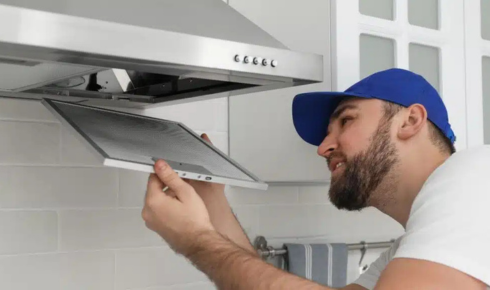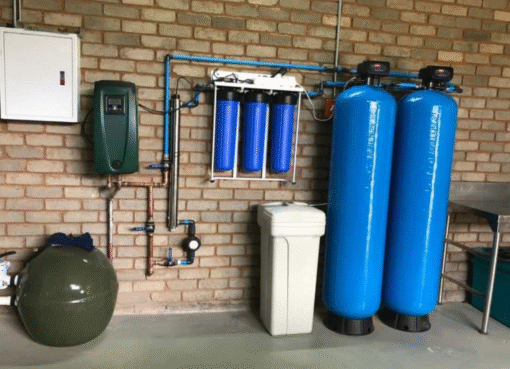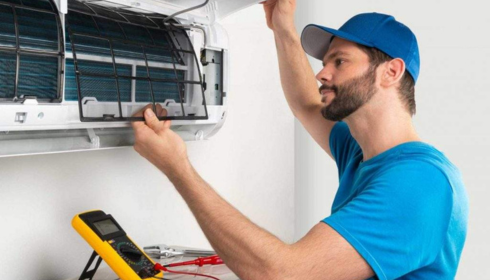Rethinking Water Quality at Home and Work: A Practical Guide

Water is one of those things we use constantly but rarely think about—until something feels off. A faint smell, a metallic taste, a stain on the sink that won’t scrub away. Suddenly, the invisible backbone of daily life becomes the center of attention. In a world where health, comfort, and convenience all matter more than ever, choosing how to treat the water we rely on has become less of a luxury and more of a necessity.
The Home Perspective
At home, water flows through nearly everything—coffee in the morning, showers before work, pasta boiling at dinner, laundry tumbling late at night. If the quality isn’t there, you notice it in subtle ways: soap that doesn’t lather, towels that feel stiff, or coffee that tastes a little “off” no matter what beans you buy. That’s why so many families now search for the best water treatment system for home. It’s not about being fancy—it’s about making sure the water that touches every corner of your household is clean, safe, and dependable.
The Challenges of Wells
Of course, not every home taps into municipal supplies. Millions of households depend on private wells, especially in rural areas. Wells give independence, but they also come with responsibility. Groundwater can carry iron, sulfur, nitrates, or even bacteria. And the tricky part? Water might look perfectly clear while carrying things you’d rather not drink. That’s where well water purification systems make a difference. Tailored to rural realities, these systems filter out contaminants at the source, protecting both your health and the longevity of your plumbing and appliances.
What Businesses Overlook
While homeowners are thinking about taste and stains, businesses face another angle altogether. Offices, gyms, restaurants—they all rely on water too, often in ways that shape customer and employee experience more than we realize. A café can have the best beans in town, but if the water’s off, every latte will taste flat. A gym might pride itself on equipment, but members notice if the showers leave them itchy. Offices, in particular, have been leaning toward smarter setups like office drinking water solutions, ensuring staff can stay hydrated without waste or hassle. It’s not just about convenience—it’s about culture and care.
The Cost of Ignoring It
It’s tempting to put off addressing water issues, especially when they don’t seem urgent. After all, if it looks clear, it must be fine, right? But the costs stack up quietly. Appliances wear down faster. Bottled water bills pile higher. Cleaning products multiply as you try to fight mineral stains. And then there’s the less obvious cost: the constant low-level stress of wondering if your water is really okay. Choosing a proper treatment system often saves more in the long run, both financially and emotionally.
Simple Signs That Something’s Wrong
Sometimes the signs are obvious: an eggy smell from the tap, orange streaks in sinks, cloudy ice cubes. Other times, they’re easy to overlook—dry skin after showers, soap that never seems to rinse away, or that faint chlorine tang in your glass. None of these are dramatic emergencies, but together they point to water that could be better. And once you’ve experienced the difference clean water makes, it’s hard to go back to “just fine.”
What Modern Systems Offer
Technology has moved far beyond clunky add-ons and endless maintenance. Today’s systems are smarter, more efficient, and often designed for specific problems. Some focus on softening hard water, others target bacteria or nitrates, and many combine functions in layered filtration setups. The beauty is that solutions can be tailored: what works for a rural well may not be what an office needs, and what a restaurant requires may differ entirely. That flexibility makes treatment less of a guessing game and more of a practical choice.
Environmental Upsides
There’s also a sustainability angle that’s hard to ignore. Every jug of bottled water you don’t buy reduces plastic waste. Every appliance that lasts longer because it isn’t clogged with scale cuts down on landfill contributions. Even reducing cleaning supplies adds up over time. When you invest in filtration, you’re not just making life easier—you’re also shrinking your footprint without really trying.
Maintenance Without the Headache
One lingering hesitation people have is the idea of maintenance. Won’t this just be another thing on the to-do list? In reality, most modern systems require very little upkeep. Filters may need swapping every six months, softeners need occasional salt refills, and some setups even send reminders when attention is needed. Service plans make it easier still. Compared to constantly lifting bottles, scrubbing stains, or replacing appliances, the upkeep feels minimal.
Everyday Benefits You’ll Notice
The payoff isn’t abstract—it shows up in daily life. Coffee tastes sharper. Showers feel fresher. White laundry stays white. Glasses come out of the dishwasher spotless instead of streaked. Even your skin and hair thank you. It’s not about one big dramatic change; it’s about dozens of small improvements that quietly stack up until you realize just how much better everything feels.
The Emotional Side of Clean Water
There’s also something deeply reassuring about not having to think twice. Pouring a glass for your child, offering a drink to a guest, or brewing a cup of tea—all without hesitation—changes the way you feel in your own home or workplace. It’s the kind of background comfort that doesn’t shout for attention but shapes how you experience daily life. That emotional layer often matters just as much as the technical specs.
Wrapping It Up
At the end of the day, water quality isn’t about luxury—it’s about basics. Homes want safety and comfort. Businesses want reliability and trust. Wells need protection from what seeps in unseen. And all of us, no matter where we live or work, want to feel confident in the water that flows into our glasses. Choosing the right system, whether for a household kitchen or a busy office, isn’t just solving a problem—it’s building a foundation for better living. Because when the water feels right, everything else flows a little smoother too.
Leave a Reply
You must be logged in to post a comment.




Leave a Comment